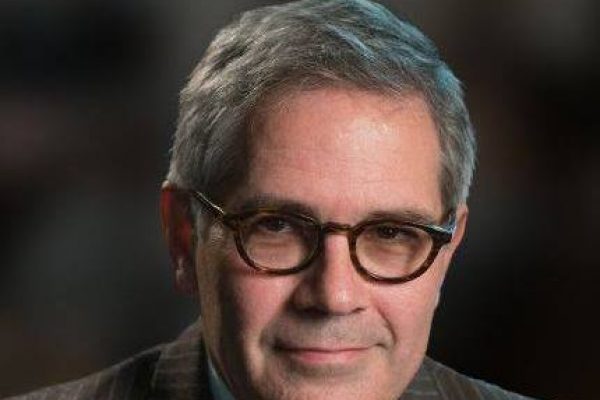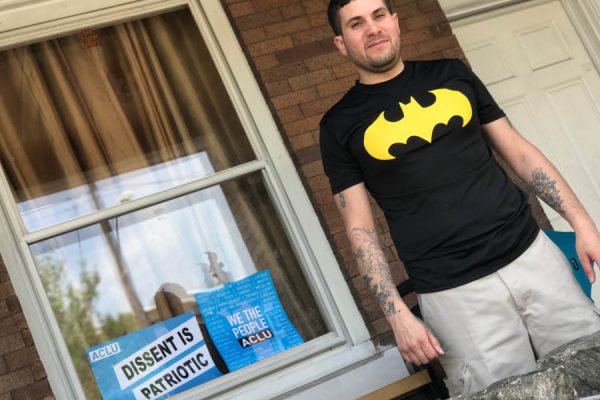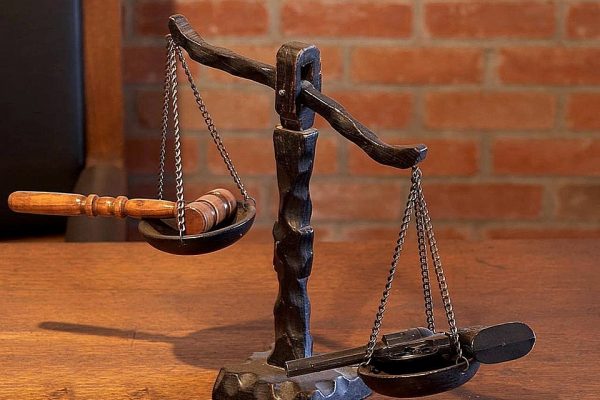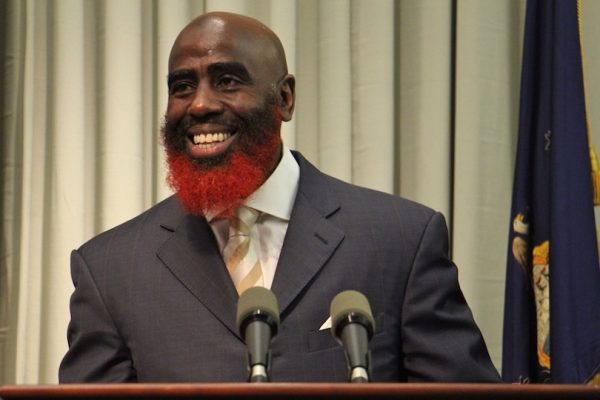Polls, Papers and The Democratic Process: Spirit News Reporter Volunteers to Work the Polls at Heitzman Rec
At 7AM on November 8th, I rode my bike over to the Heitzman Rec Center in Harrowgate to help sign people into vote. The sun was barely up but there was already a line of people at the polls, ready to vote before work or school.
Immediately upon entering the gymnasium, I was put to work by Bob Farrell, judge-of-elections for the 17th Division of the 45th Ward. My job was to sign people into the two huge books of registered voters. The flow of voters was so steady that it was at least an hour before I even got the name of the woman working alongside me. Regina Farrell, Bob’s wife, has been working elections (local, primary, presidential, all of them) since 1972 during Thatcher Longstreth’s run for mayor.
The Farrell family have a rich history in Harrowgate politics and civic engagement. Back in the 1990s, Regina helped found the Harrowgate Civic Association (HCA). Shannon Farrell, her daughter, is the current HCA president.
The ACLU and other groups of lawyers hung around the rec center to prevent potential voter suppression. However, none of these people had poll watcher certificates and so were not allowed to operate inside of the polling location. Lawyers were escorted back outside on several occasions. They managed to maintain a presence outside which seemed useful in that it gave voters a resource to learn more about voting rights. I personally did not witness anyone get turned away save for being unregistered. This was a comfort in light of stories of voters being harassed for not having photo identification.
People who did not show up on the registry were given provisional ballots. This practice is controversial in its own right. Provisional ballots are counted only after the registration of the voter is confirmed. They could potentially be used as a tool to suppress the actual count of the vote until after election night. However, the rate of incidence in which provisional ballots were employed at my table did not seem concerningly high. I believe only around two dozen of the 408 votes cast in the 17th Division were provisional.
There was, however, a problem with representation outside the polls. As the morning progressed, people began mentioning with increasing frustration that there were no Clinton signs out front to offset the numerous Trump posters. Apparently, no one from the Clinton campaign had shown up to drop off signage.
Around noon, this frustration came to a head when a woman took it upon herself to start ripping down the Trump signs. In the interest of keeping decorum the police were called but no further action was taken. According to the PPD, the only recourse would be to file a formal complaint. Someone called for backup Trump signs which arrived promptly. Around 4PM, two teenagers ripped these new signs down and spit on them.
“I’d like to do worse,” said an onlooker. “What he says about women and the disabled? I’d like to do worse.”
It was hard to tell what he meant by “worse” in the context of ejecting bodily fluid onto a lawn sign and the conclusions I came to are not suitable for this publication. By the end of the night, the sidewalk outside of Heitzman was littered with the debris of shredded Trump-Pence signs.
The amount of paper involved in the process of signing people in to vote was unreal. I came of age after the turn of the millennium and I don’t remember ever having to use so much printed data to complete a task. I still read printed books, but raw data, in my realm of experience, is something that has been indexed and archived in a digital database. This election, among many other things, has instilled in me a new and profound respect for data entry clerks.
As darkness fell, parents dragged in their freshly registered teenaged sons and daughters. The teenagers seemed tired from a day of high school, but displayed a kind of begrudging interest in the act of voting.
“That’s it?” They would ask me as they exited the polls. “Damn, that’s it?”
As soon as 7:30PM, people were already saying “he’s going to be our next president” in surprised tones. I was still convinced by the New York Times model which predicted something like a 13 percent chance of a Trump victory so these prognoses just kind of washed over me.
As we began to close up the polls around 8PM, I finally got a chance to talk to Regina about her history with elections. For the past 13 hours, we barely had a chance to exchange much more than small talk. I do not remember a lull in which I had the time to feel the dullness and discomfort of sitting in the same folding chair for hours on end but by now I was beginning to notice the pain in my back and arms. I could only imagine what a Regina, a woman in her sixties, was feeling.
“I like it,” she said. “But when I was younger I could last longer and not get pains like I’m having now. But I have to do it because as you can see, there’s not a lot of people that want to do this.”
She had a point. We were certainly understaffed. The closest any of us had had to a break was five minutes outside for some air. The table for the 19th Division was backed up all day because one of the women working it was apparently experiencing severe vision problems due to cataracts. Volunteering on Election Day seems, in these times, to be resoundingly an older person’s game.
Regina began to explain how and why she got into volunteering. Apparently her father had always volunteered and made sure that each of his six children worked the polls as well. When she married Bob in 1976, she continued this tradition in Harrowgate.
“Before I started the civic association, [elections] were like the meeting place for the neighbors,” she said. “Everyone that you hadn’t seen for a while would come to vote and you could gab and talk and tell each other problems and try to help each other out.”
Regina said it was this sense of community that led her to found the HCA.
“If you don’t like something in politics, tell everyone” she said. “If they didn’t do something, if they didn’t do their job, tell everybody. Just like Shannon does now. She had a problem with the DA, she went up online told everybody including him, sent all the emails not only to him but everyone else. Next thing you know she’s getting cooperation. Because they know you’re going to tell.”
This seems like increasingly important advice in these new and uncertain times.
Final Count for the 45th Ward can be found at http://filter.phillyelectionresults.com/Comprehensive.aspx •





